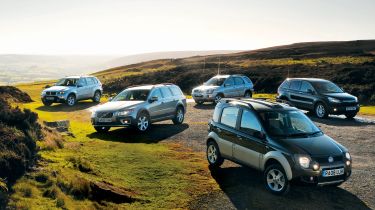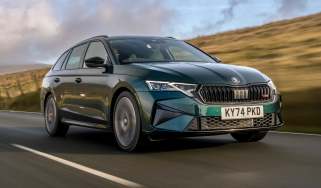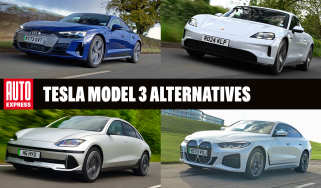The Greenest 4x4s
Is every off-roader a thirsty, planet-destroying monster? We pick five low-emission models to find out.

These days, 4x4 equals villain. Not everyone agrees, but there’s no doubt anti-SUV feeling has reached fever pitch. The notion that an off-roader is an environmentally irresponsible choice is creeping into the subconscious. But is the SUV’s downfall inevitable, or are 4x4s getting a raw deal?
Look at the facts and figures without bias, and you’ll find it’s not as clear-cut as some might have you believe.
Yes, there are scores of all-wheel-drive models which emit supercar CO2 with little tangible benefit to everyday drivers, particularly around town. But many others can easily offset a small hike in emissions in the name of extra versatility, practicality or desirability. To find out if there is such a thing as a green 4x4, we’ve brought together five models from different sectors of the off-roader market which share one thing in common – lower CO2 emissions than nearly all of their rivals.
The smallest car in our group is Fiat’s Panda Cross. With a fuel-sipping 1.3-litre diesel engine, the rugged city runabout-turned-mud-plugger emits only 136g/km of CO2, and manages 54.3mpg on the claimed combined economy cycle.
For anyone demanding more space but for relatively little extra outlay, we’ve included the Kia Sportage. Its 187g/km emissions can’t match some more costly rivals, but it offers space and go-anywhere ability on a budget. Move up another class in the SUV sector, and we’ve chosen the Honda CR-V as the greenest option. Ford’s new Kuga has lower CO2 emissions, yet its cabin is far less practical than the Honda’s, so the Japanese model justifies its carbon output more easily. Completing the test are two premium market models. Volvo’s XC70 offers 4x4 versatility in an estate car body, while the big BMW X5 has a great mix of low emissions and desirability.
We’ve put each model through an exhaustive 800-mile test on all types of roads – including many that called on each car’s all-wheel-drive powertrain. Could these 4x4s ever really be called green? It’s time to find out!
Verdict
If there’s one thing this test has proven, it’s that there is a place for off-roaders in the UK. Many make little sense in the city, and a large proportion don’t have the engineering quality to reduce wasteful emissions. Yet look hard enough, and you will find some superb machines – and plenty of areas of Britain where they are perfectly suitable.
Rural counties which become difficult and dangerous to get to in harsh weather conditions are the natural habitat of the SUV. We’re not saying these models will be used as recreational off-roaders, but they will call upon their all-wheel-drive ability to overcome slippery surfaces, climb grass verges to let oncoming traffic through on narrow lanes, and appeal to the driver’s sense of adventure.
However, not all five cars are wholly convincing. While they offer relatively low emissions compared to rivals, not every model justifies its selection here – and we reveal the winners and losers within.






